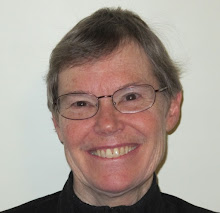An article published April 3 in the Daily Hampshire Gazette (Northampton, MA), in a series titled "Readers' voices in the time of coronavirus," helped me gain this perspective. The author, Marcia Burick, describes her own experience getting polio during the polio epidemic that swept the country in the summers of 1951-1953. Her article, Polio and the COVID-19 virus: Taking in personally, opens this way:
"There's never been anything like this before." Well, yes there has. The fear of serious illness, the randomness of it all, the mystery of why it happened, when will it ever end, will there be after effects? All this talk of ventilators and respirators, and the need to find more. For me, this triggered a memory from long ago, 66 years ago, in fact to September of 1953.Oh, yes! In Danvers, in my childhood, polio was a scary subject. My parents were worried. Some of their friends were stricken. I especially remember one man who used to ski regularly with my parents, and then he was ill, and had to be in a wheelchair because of polio. I also remember lining up at school to get a "shot" - to be vaccinated against polio.
In my lifetime there have been several cycles of epidemics. The HIV/AIDS epidemic in the 1980's, when I worked at Stanford University, was devastating, killing some of my colleagues so quickly. It seemed we were going to memorial services every week. A big staff meeting was called to discuss how to stay safe, but so little (at that time) was known about the strange new illness that we were left with more questions than answers. Eventually HIV/AIDS became more understood and manageable. One of my favorite Stanford colleagues was able to survive many years after his diagnosis, and enjoy some time in retirement.
Here I sit, in retirement, sequestered at home and not knowing when or if I might become sick because of this new virus. On one level, it is scary. On another level, it is a peaceful time for reading, writing, walking with the dog, watching movies, and working on projects. I've become quite familiar with virtual meetings (via ZOOM, GoToMeeting, or other online tools), and I'm trying to be helpful to the community at large. This week, in my role as a board member of nonprofit Funeral Consumers Alliance of Western Massachusetts (FCAWM), I wrote a one-page document that we intend to distribute to front-line institutions (hospitals, hospices, nursing homes, etc.) to help them guide families who are dealing with deaths of loved ones. I've called it "Tips for consumers about funeral options during the Covid-19 pandemic."

No comments:
Post a Comment